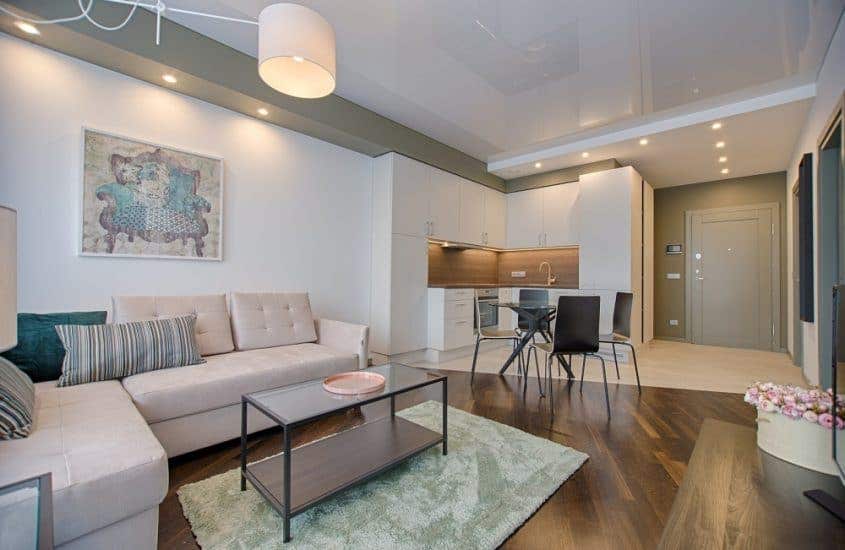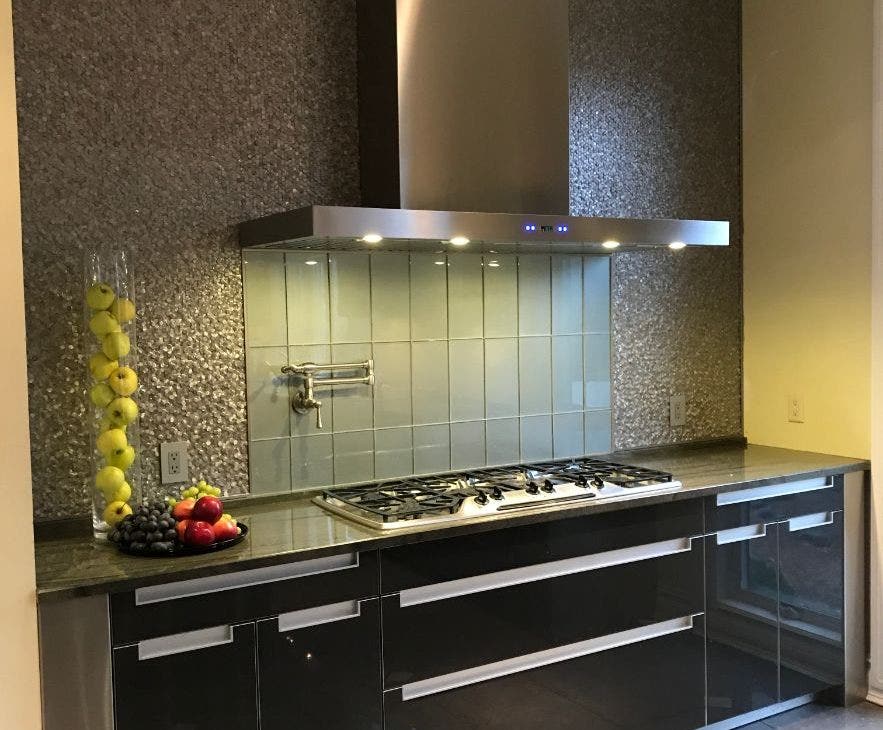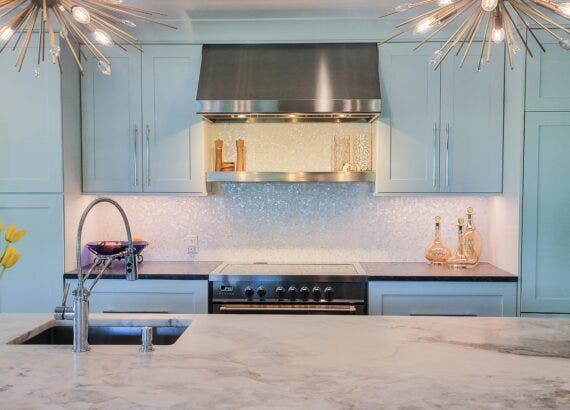13 Tips To Renovate Your Home On a Budget

Thanks to Joseph Bryson for this guest post.
Are you looking to renovate your home? Maybe you want a new look, you’re starting a family, or just want to mix things up?
You can call in an architect or interior designer for a quote. But, if you’re quite handy and you’ve got an idea of exactly what you want, you can work on a lot of the renovation yourself.
This will help you save some money and you’ll become more involved in your remodel.
To help you along, here are 13 tips to renovate your home on a budget.
Table of Contents
1. Get a Working Team
Your complete team would typically consist of an architect, a builder, and an interior designer. These professionals play major roles in the renovation process. Don’t skimp on them in order to cut costs.
We’re not suggesting you should spend unreasonably here but it would be wise to go with experts. In fact, they might end up helping you save money on unnecessary purchases or correct impractical calls on your end.
It’s also helpful to ask your friends and family for advice during your renovation. What hurdles have they run into in the past? What worked for them? What would they do differently?
2. A Clear Mental Picture
Before beginning to renovate, you need to get really clear about what the new space is going to look like. If you found inspiration from a magazine or TV, that works just as well.
A clear mental picture of your renovation will help you determine your budget, who you need to hire, and how long the renovation will take. It’ll also help you plan hotel stays if you’re doing a big renovation and you need to leave your home.
3. Budget!
The best practice when it comes to your budget is to set aside a few thousand dollars for emergencies.
Also, be flexible. Your renovation won’t go perfectly; you’ll have some hurdles and issues along the way. But, a flexible budget will reduce your stress. You won’t always be worried about spending too much money.
Your builders will typically let you know what your renovation plan would cost. If you don’t agree with their estimate, don’t push forward with the renovation. Make sure that you are clear on the budget before continuing the remodel.
4. Do Your Research
Yes, it’s important to research how you want to lay out your home, especially when you have a small living place. You might encounter some ideas on improving small houses during your research process. After calculating your own plan, you can then ask for quotes from contractors.
But, after getting quotes, the pressure is on you to ensure you’re not being charged too much.
When doing your research, look into three or four contractors. You don’t want to commit to a contractor too early and find out that he charges an outrageous amount for his service.
You’ll also want to get an idea of the quality of service that’s available to you. Depending on where you live, the quality of contractors and designers will vary.
If you are taking a lot of time on your research, don’t worry. It will likely pay off in the long run. It’s better to take extra time to do thorough research than to rush into the remodel.
5. Figure Out the Work Scope
After you have come up with a realistic budget and done your research, the next step is to plan high-priority tasks.
What are the most important things you need to start for your renovation? Start with those. Anything time-sensitive should be put to the top of your list.
Also, if a contractor has a specific time frame of availability, do your best to flex to their schedule
Second, what do you want, but not need? You can move those to the bottom of the list until your needs are met.
As you progress with your renovation, keep tabs on your budget. Are you running low or is your budget looking good? Then, make adjustments as necessary.
6. Start Early
Once you’ve got your professionals in place as well as the money required for supplies, have them get to work immediately. The earlier you start, the faster your team can complete their jobs, and the faster you can enjoy your newly renovated space.
But, it’s important to not rush through the process. This will save you time and money in the long run. Yes, mistakes will happen. But taking your time will be more efficient.

7. Temporary Housing?
If you are doing a great deal of renovation, you’ll need to find a place to live for a while.
Staying at your home won’t be too pleasant. Workers make a lot of noise and dust and fumes may be a danger to your health.
When making your budget, be sure to account for temporary housing. You may need to stay away from your home for longer than expected. So, it’s not a bad idea to overestimate how much you’ll need.
8. Some DIY
You can get some things done by yourself and this would help you cut costs. You’d be getting some hands-on practical experience too.
Painting, installing baseboards, and flooring are a few options for DIY remodeling.
9. Cutting Costs
If you want to stick to a budget, you might want to look into cutting costs. No doubt you can do without certain materials or fixtures and this is where cutting costs comes in.
First, ask your professionals what you absolutely need and what you don’t. Make sure that they have your best interests in mind. Good research will help ensure that you find a reliable contractor or designer.
Although you can cut costs, be sure to buy all the vital materials. Most importantly, do not compromise on quality.
10. Reuse Furniture and Appliances
Renovation doesn’t imply that you should throw out every single piece of furniture that you have.
If you’re switching to an entirely different theme, there might be certain materials that fit into this new design.
For example, if you already had RTA wood cabinets in your kitchen, it would be great to reuse them again in your new refreshed house.
As long as they are durable and still functional, then you can integrate them with the new and save some money in the process.
11. Sell Off the Old Stuff
Do you have any materials left over from your renovation? Sites such as Craigslist or OfferUp are platforms where you may be able to sell some of these materials. Or, if you want to get rid of old appliances or furniture, this is a great place to go.
You can add this extra cash to your budget and you won’t have a lot of stuff lying around.
12. Earn Rewards On Purchases
This tip is dependent on whether you use reward credit cards. If you do, use them to pay for materials and then pay off the debt immediately with your cash in hand.
This way you earn rewards without getting in debt.
Another innovative way to put this rewards tip into practice is to buy gift cards from grocery stores. Look for gift cards that give rewards for spending such as a discount on future grocery purchases or fuel.
13. You, the Project Manager
It is your project, so, act as the manager. It comes with perks like deciding labor and purchases, so, you’re fully in charge. Consult professionals for sure, but take ownership of the renovation process. Always check with your team and hold them accountable to finish projects at high quality and on time.
That being said, don’t get too frustrated with delays. They are a part of the process.
Hopefully, these 13 tips help you start a budget-friendly renovation. If you want more information on how to conduct a smooth home remodel, check out the articles below.
Related Articles
Whole Home Remodel – Where to Start







Comments are closed.